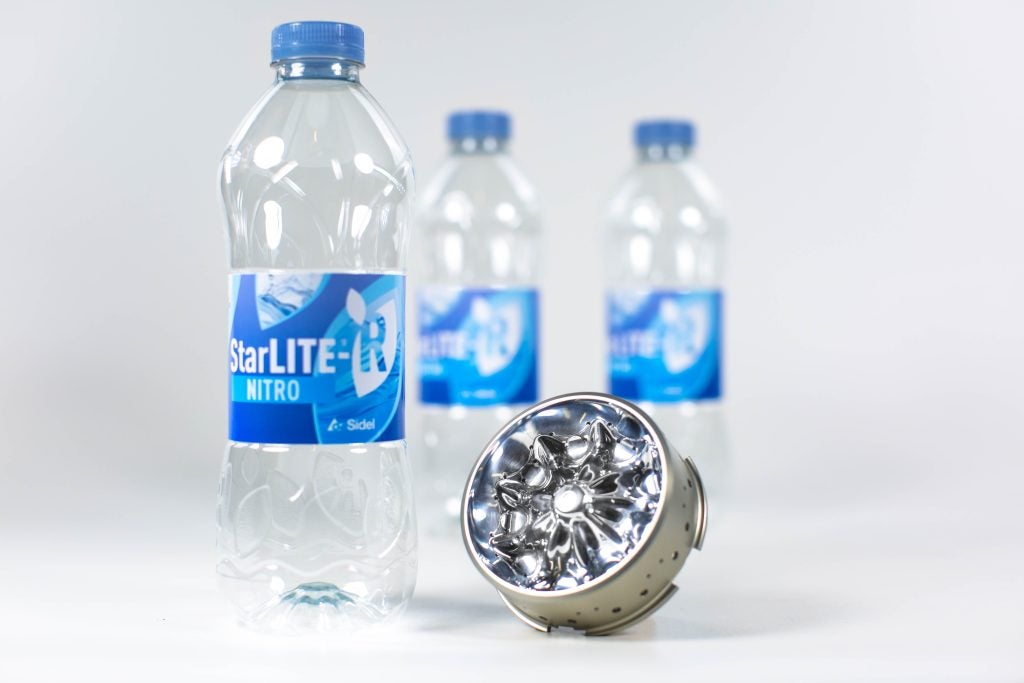Sidel has upgraded its StarLITE-R Nitro range of bottle bases for still nitrogen-dosed products in 100% rPET (recycled polyethylene terephthalate) bottles.
Nitrogen dosing adds a small quantity of liquid nitrogen to beverage and food products which enables an increase in pressure inside the bottle to aid the pack’s resistance as it travels through the supply chain. This process is used for still beverages and food products.
Sidel’s "wave" bottle base design for still beverages and edible oils contrasts with traditional petaloid [resembling a flower petal] shapes and provides a foundation for many bottle shapes and designs, from 0.2 litres to 2.5 litres.
StarLITE-R Nitro’s bottle base features optimised mould base geometry and a venting system for shaping.
Drawing upon Sidel’s patented mould technology, the design features 8 to 10 waves to withstand high internal pressure resistance between 0.5 to 0.8 bar, even with lightweight bottles.
The solution has undergone resilience and quality testing within industrial conditions including drop tests with no base breakage. This is particularly important for bottles made with rPET which tends to be more sensitive to breakages.
The new Nitro base features a standing surface to secure bottle stability and is qualified to withstand storage up to 38 degrees centigrade.
StarLITE-R Nitro can be used with production speeds up to 2,700 b/h/m for single-serve formats or 2,500 b/h/m for multi-serve bottles.
The bottle base is compatible with Sidel’s range for blowers: series 2, Universal and EvoBLOW. It can be retrofitted onto existing production lines and moulds.
Sidel packaging innovator leader Laurent Naveau explained: “As an original equipment manufacturer with over forty years of blowing expertise, Sidel has channelled this experience into the design of this new bottle base.”
The company recently completed the construction of a vast solar photovoltaic system at its Parma plant in Italy.









